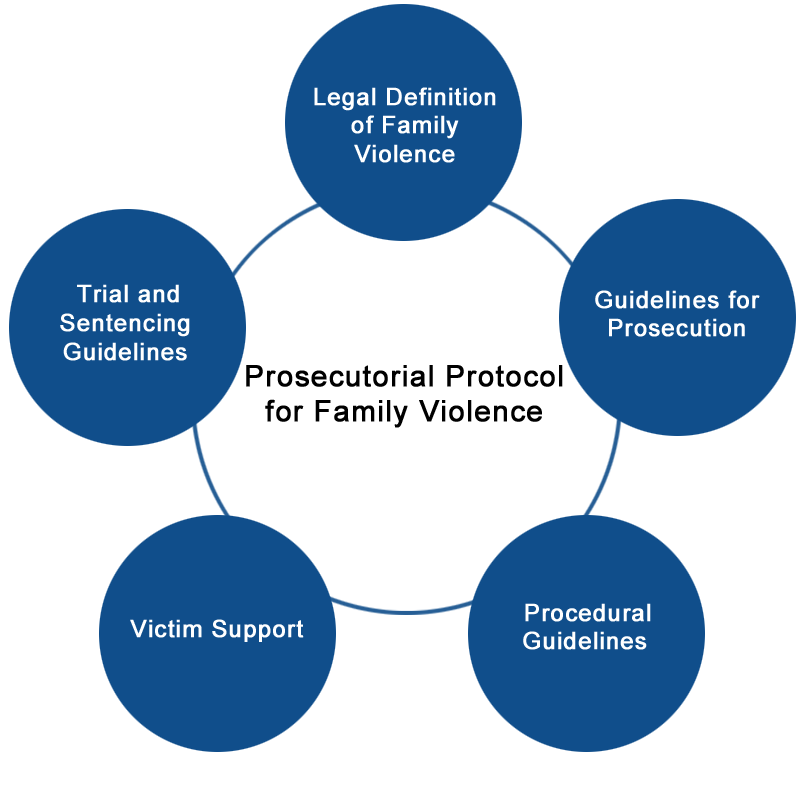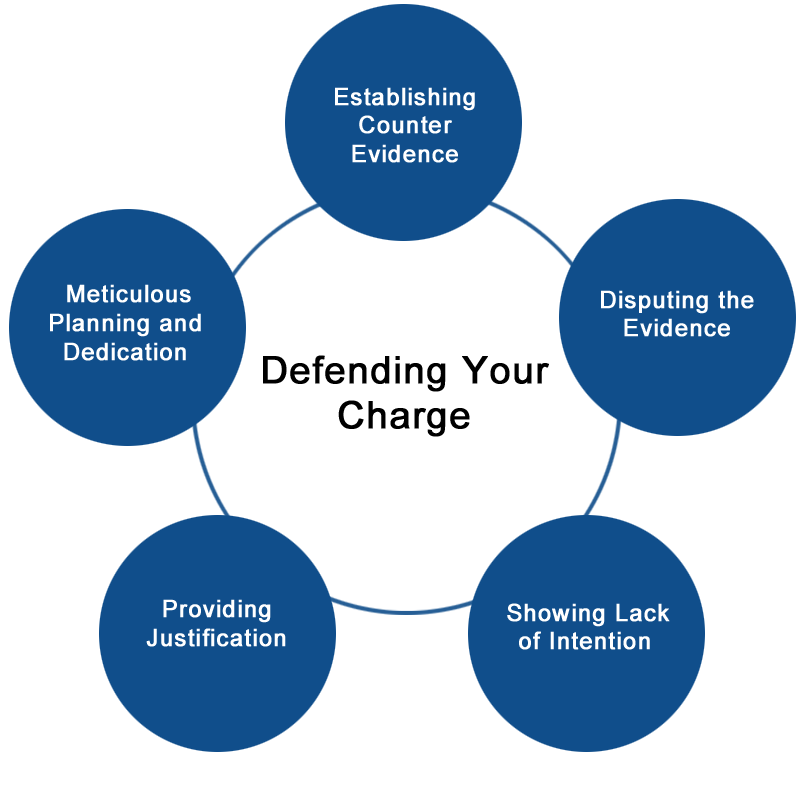
Family Violence Battery and Aggravated Battery Charges in Georgia
Under Georgia law, battery and aggravated battery carry two distinct definitions. Battery refers to the criminal action of applying force against another person without permission, causing injury or unwanted physical contact. Aggravated battery, on the other hand, results when one person deliberately applies force with the intention of injuring another person, resulting in serious disfigurement or loss of mobility.
The various situations that can elevate batter to aggravated battery are contained in Georgia Code § 16-5-23. Pertinent to cases that involve battery between family or household members, subsection f details the additional consequences:
“If the offense of simple battery is committed between past or present spouses, persons who are parents of the same child, parents and children, stepparents and stepchildren, foster parents and foster children, or other persons excluding siblings living or formerly living in the same household, the defendant shall be punished for a misdemeanor of a high and aggravated nature.”
This language was added to the legal definition of battery to create additional protections for victims of domestic abuse, creating greater penalties for those who commit battery against members of their own family or household.
Battery vs. Aggravated Battery
While Georgia law is clear in saying that battery between family or household members will be treated as battery “of a high and aggravated nature,” there is still a few key distinctions between the charges of Battery and Aggravated Battery.
Battery involves intentional bodily harm to another person and is treated as a misdemeanor for the first offense. As such, it carries potential jail time and fines as well as mandatory counseling and probation, along with the long-term impacts that a criminal record can have on child custody, citizenship, and ability to secure housing or employment.
Aggravated Battery occurs when the injury resulting from the act of unwanted contact is more severe, often due to the involvement of a weapon. Considered a felony offense, Aggravated Battery carries much higher consequences including a prison sentence of up to 20 years, as well as greater fines and potentially higher long-term consequences including loss of First Amendment and voting rights.
In either case, there are additional ramifications when the incident occurs between family members or those sharing a household. The law does not limit this definition to blood – anything from lease agreements to joint financial statements or utility bills can be used to prove cohabitation or joint residence, enabling prosecutors to pursue elevated Family Violence Battery or Aggravated Family Violence Battery charges.
Georgia’s Family Violence Act
Designed to protect those who face abuse from family members or members of their household, Georgia’s Family Violence Act is a clear sign that the state of Georgia does not tolerate domestic violence. However, it has also had the unintended side effect of encouraging law enforcement and prosecution to push charges forward, regardless of whether the evidence supports such a charge. Because of this zealous prosecution, hundreds of Georgians are falsely accused every year of committing domestic crimes.

Using the definition of family violence as outlined in this act, law enforcement officers are authorized to place individuals under arrest if they have probable cause to believe that family violence occurred. This probable cause generally stems from evidence of physical injury or credible threats on the scene. Empowered by the law, officers can initiate the arrest in order to protect victims from further harm and provide time for them to seek help.
The law has additional guidelines to follow when prosecuting family violence, as outlined in Georgia’s Prosecutorial Protocol for Family Violence.
 Prosecutorial Protocol for Family Violence
Prosecutorial Protocol for Family Violence
Created by the Georgia Commission on Family Violence, the Prosecutorial Protocol for Family Violence provides guidelines for law enforcement and prosecution in handling cases of domestic violence. Some of the details and information included in this document are as follows:
Legal Definition of Family Violence: As stated in the document’s introduction, “Family violence is abuse that occurs between family members or unmarried partners.” It further illustrates how that violence can be physical, sexual or emotional in nature.
Guidelines for Prosecution: The document urges prosecutors to pursue these charges even if the victim does not wish to, stating, “Charges will be prosecuted without victim cooperation if there is deemed to be sufficient independent evidence to prove the elements of the crime(s) without the victim’s full involvement.”
Procedural Guidelines: The document guides prosecutors through the initial screening for domestic violence, plus provides framework for preparing a case, communicating with victims, and weighing the evidence, such as any injuries, weapons involved or criminal history. The document also outlines independent evidence that can be collected if the victim does not cooperate, such as third-party eyewitness accounts or medical reports.
Victim Support: While the prosecution may not necessarily take the victim’s wishes into account when pressing charges, the document does state that, “Every effort should be made by the prosecuting attorneys to contact the victim within five days of receipt of a case.” It also outlines the information that should be given to the witness.
Trial and Sentencing Guidelines: Beyond the initial arrest, the document guides prosecutors through the entire process of the trial, from initial jury selection to cross-examination of uncooperative victims to sentencing. It also recommends long-term counseling for the offender.
For those facing charges of family violence battery in the state of Georgia, it’s important to understand what’s in this document and the seriousness it reflects in prosecuting family violence.
 Defending Against Charges of Family Violence Battery
Defending Against Charges of Family Violence Battery
Perhaps the most important aspect of Georgia law to understand when facing family violence battery or aggravated battery charges is that charges can’t be dropped. Under Georgia law, family violence battery is treated as a crime against the state not against the victim. The prosecution may consider the victim’s testimony and wishes, particularly in sentencing, but otherwise has complete discretion to pursue charges.
As a criminal case, these charges require a vigorous defense in order to avoid the jail time and penalties that come with a conviction. Fortunately, there are several ways of defending against these charges, strategies that The Claiborne Firm has employed to have charges reduced or dismissed altogether. These include:
- • Establishing Counter Evidence: This can include providing an alibi, seeking out witness testimony as to the defendant’s innocence, or proving that permission was given and that the act was consensual.
- • Disputing the Evidence: This can include contesting the victim’s testimony, or showing that there was no physical contact or substantial injury.
- • Showing Lack of Intention: This can include arguing that the incident was a misunderstanding or an accident.
- • Providing Justification: This can include showing that the defendant was provoked into action, or that they acted in defense of themselves, others or property.
These are just a few of the strategies that The Claiborne Firm has employed in winning cases that seemed unwinnable, ensuring that charges are dismissed or reduced. Behind each of these successful strategies is a dedication to meticulous planning that serves as the cornerstone of all we do. Our attorneys deliver nothing less than our utmost dedication to our clients, safeguarding their freedom with a defense built on exhaustive preparation. You don’t need to live with a conviction on your criminal record. Submit your contact information below to schedule a free, no-obligation review of your case.
Call (912) 351-8775 or Schedule a Free Case Evaluation Online
